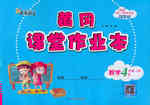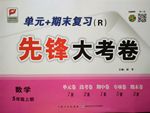题目内容
Nobody noticed the thief slip into the house because the lights happened to__________.
A.put up B. give in C. be turned on D. go out
D
解析:
本题的关键是理解题干的意思。该试题主要测试动词短语的词汇意思区别。句子的含义是:“没有人注意到小偷进屋,因为那时灯熄了。”符合题意的只有D项“熄灭”。

 中考利剑中考试卷汇编系列答案
中考利剑中考试卷汇编系列答案 教育世家状元卷系列答案
教育世家状元卷系列答案 黄冈课堂作业本系列答案
黄冈课堂作业本系列答案 单元加期末复习先锋大考卷系列答案
单元加期末复习先锋大考卷系列答案Chinese media and Internet users on Monday condemned a lack of morals in society after a toddler was struck twice by two different vans and left bleeding on the road as more than a dozen bystanders did nothing to help the seriously injured girl.
The incident, captured by a surveillance camera and aired by Southern Television Guangdong (TVS), showed the two-year-old girl was knocked down and run over by a white van on a narrow market street on the afternoon of Oct. 13, in Foshan City of Guangdong Province.
The driver fled the scene of the accident, leaving the girl to bleed on the sidewalk. Over the next six minutes, more than a dozen people walked by the girl, yet not one individual did anything to help her. The girl was then hit a second time by another van before an elderly trash collector came to her aid and brought the attention of the girl’s mother, according to the video and eyewitnesses.
Doctors said that the girl, who was put on life support after being hospitalized, remains in a deep coma. The girl's parents, who are migrants living in the city, are now with her.
Police said the drivers of both vehicles have been arrested. However, the apathy of the bystanders shown in the video has shocked the public, as Internet forums have seethed with anger, and people are questioning the morality of society.
High moral standards were once triumphed as national pride in China where individuals known for selflessly helping others were adored by the public.
But in recent years, the perception of a decline of morals has become a hot topic as profit and materialism are perceived to be affecting society’s values.
On Sept. 2. an 88-year-old man in central China collapsed, his face striking the pavement. Yet, no one came to his aid, and he ended up choking to death on the blood from his nose.
Some have linked the absence of good models to a previous case in which a man trying to help an elderly woman who fell was accused of harming her.
A strong chorus of opinion on the Internet says laws should exempt(免除)models from responsibility, yet laws themselves cannot solve society’s morality dilemma.
Cao Lin, a China Youth Daily commentator, said in a signed article published on Monday that the worry of responsibility should not be an excuse for not helping, and this case exposes the decline of humanity in Chinese society.
1..From the passage, what would happen if someone helped others selflessly in the past?
|
A.The public would feel proud of him/ her and showed love and respect for him/ her |
|
B.He/she would be awarded by the government. |
|
C.He/she would be condemned by the public. |
|
D.He/she would have to worry about liability. |
2. Which of the following is TRUE about this passage?
|
A.Nobody helped the girl who was struck twice by two different vans. |
|
B.High moral standards were once regarded as national pride in China. |
|
C.The toddler died immediately after she was hit a second time. |
|
D.Journalists from TVS captured the incident by using a camera. |
3. In recent years, society’s values is believed to be affected by________ .
|
A.people’s perceptions |
B.the apathy of bystanders |
|
C.profit and materialism |
D.the morals of society |
4. According to Cao Lin, what is the fundamental reason for not helping the girl?
|
A.The worry of responsibility. |
|
B.Lack of laws that exempt role models from responsibility. |
|
C.The other two cases mentioned in the article--the case of an 88-year-old man and the case where a man trying to help an elderly woman who fell was accused of harming her. |
|
D.The decline of humanity in society. |
5. Where is the article probably taken from?
|
A.A news report. |
B.A fashion magazine. |
|
C.A science fiction. |
D.An education column. |
Afraid that her son would be too tired, Ms. Wendy would sometimes tell the boy to skip school, but each time, Fabian would insist on going to school.
“I don’t like it because when I return to school, I don’t know what’s going on,” the 12-year-old boy explained. He suffers for SMA-a neuromuscular(神经肌肉的)disease that leads to weakness in muscles-and gets around in a wheelchair.
Fabian’s determination to excel in his studies was evident when he was disappointed that he got a total score of 236 yesterday in his Primary School Leaving Examination. He was hoping for a score of at least 240, but his mother was full of pride. “I am happy with his results. He’s very motivated,” said Ms. Wendy.
When Fabian was two months old, he was diagnosed with SMA. Ms. Wendy, who used to go to other homes to teach piano lessons, started teaching lessons at home so she could take care of her son. Fabian proved to be a fighter. Ms. Wendy said, “ He would study every day on his own even though he was weak and his spine(脊柱)was already starting to curve quite badly.”
Fabian is also active in the Singapore Disability Sports Council, where he plays boccia(滚球), a ball sport for those who require a wheelchair due to physical disability.
At just 133cm tall and weighing 14kg, he knows that he will have to rely on others all his life. “I’m afraid that when my parents grow older, they will not be able to carry me and that there will be nobody to carry me,” said Fabian. “But for now, I feel lucky that I get to go out and do a lot of things that I thought I couldn’t.”
His dreams aren’t lofty(崇高的)either-all he want to be able to do is work and provide for his parents. “I just want to study hard so that I can be a businessman, like my dad.” He is planning to apply to study at Victoria School.
1.The underlined word “it” in the second paragraph refers to ______.
A. going to school. B. being absent from school
C. studying hard. D. suffering from SMA.
2.We can know from the text that Fabian ______.
|
A.got the disease at the age of 12. |
|
B.was proud of his exam results. |
|
C.has no interest in any sports. |
|
D.wants to be a businessman like his father. |
3.What do we know about Ms. Wendy?
|
A.She insists that her son go to school. |
|
B.She used to be a piano teacher in a school. |
|
C.She is satisfied with her son’s performance at school. |
|
D.She fears that her son will be helpless when she is older. |
4.Which words can best describe Fabian?
|
A.Sensitive and weak. |
B.Active and optimistic. |
|
C.Clever and strong. |
D.Stressed and concerned. |
5.What is the best title for the text?
A. He Is Disabled but He Is a Fighter.
B. A Great Mother and Her Special Son.
C. How to Fight Against SMA.
D. A disabled boy’s dream.
As I understand, if scientists produced a human clone, there would be a great risk of it having a disease. Nobody seems to understand the ageing process of a clone. It would be terrible if a baby was the age of its parent at 31 . Its cells would grow old fast and it would die young. 32 until the technique is perfectly safe, it should be 33 .
I'd love to have a clone of 34 . I often wish I had a twin sister, someone who 35 me in everything. So why not a clone? Well, the idea 36 be fun but I'm not sure if it would be 37 . I think we would be playing with fire if we let scientists go ahead with 38 cloning. There are so many 39
involved that all research in this area should be strictly controlled.
There are so many arguments 40 cloning that it is difficult to get anyone to consider the possible benefits. I am 41 that it is a technique which could be beneficial. The most obvious use would be for childless 42 . They would be able to have babies with their own genetic material. I don't see what's wrong with that.
Imagine a child 43 up knowing that his or her mother is really a sister or a brother. The emotional 44 on the child would be 45 . Or a child who was cloned from a dead brother or sister. What kind of emotional pressure would they feel, knowing they were made as a replacement for another? The whole idea
46 me!
It's all very good to ban human cloning but scientists should be allowed to 47
research. If they don't, we may 48 important benefits for our society, such as producing body organs. A clone is an 49 copy of a person with the same gene. Therefore, it is the 50 donor for an organ(器官) transplant.
|
1. |
|
|
2. |
|
|
3. |
|
|
4. |
|
|
5. |
|
|
6. |
|
|
7. |
|
|
8. |
|
|
9. |
|
|
10. |
|
|
11. |
|
|
12. |
|
|
13. |
|
|
14. |
|
|
15. |
|
|
16. |
|
|
17. |
|
|
18. |
|
|
19. |
|
|
20. |
|